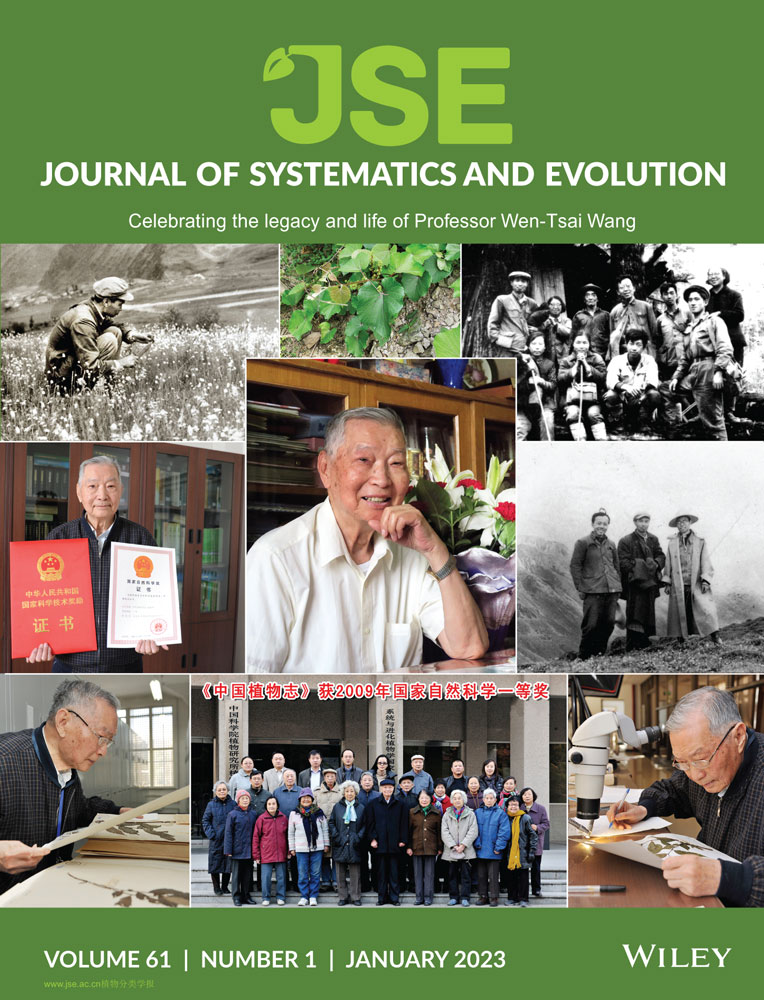The
Journal of Systematics and Evolution (
JSE) has launched a valuable new resource: a
Virtual Special Issue dedicated to
Animal Systematics and Evolution. This issue compiles significant research articles previously published in
JSE into one digital collection focused on unraveling the evolutionary history and relationships within the animal kingdom. This virtual issue showcases cutting-edge work using modern phylogenetic methods, genomic data, morphological analyses, fossil evidence, and integrative approaches. Topics span the evolutionary tree, from deep origins and major transitions to the diversification of specific vertebrate and invertebrate lineages. To have your cutting-edge research included in this collection, please submit your manuscripts to JSE here (
https://mc.manuscriptcentral.com/josae).
The
Journal of Systematics and Evolution (
JSE) is proud to announce a new
Virtual Special Issue dedicated to
Insect Systematics and Evolution. Recognizing the significance and rapid advancements in understanding insect phylogeny, we have curated this collection of cutting-edge research articles previously published in
JSE to showcase high-impact studies employing modern phylogenetic methods, molecular data, morphological analyses, and integrative approaches to decipher insect evolutionary history, classification, and diversification patterns across various groups and time scales. To have your cutting-edge research included in this collection, please submit your manuscripts to JSE here (
https://mc.manuscriptcentral.com/josae).
The
Journal of Systematics and Evolution (
JSE) is pleased to introduce a
new Virtual Special Issue focusing on Microbial Systematics and Evolution. This initiative gathers a curated selection of significant research articles, originally published in JSE, into a single, easily accessible digital collection dedicated to exploring the evolutionary history and relationships of microorganisms.
This virtual issue provides a
centralized resource for researchers. It highlights cutting-edge studies utilizing advanced techniques like phylogenomics, comparative genomics, molecular clock analyses, and integrative approaches to decipher microbial origins, major evolutionary transitions, diversification patterns, and classification.
Professor Wen-Tsai Wang (June 5, 1926–November 16, 2022) was a legendary plant taxonomist in Institute of Botany of the Chinese Academy of Sciences (CAS). He made significant contributions to advance the understanding of the flora of China, biogeography of eastern Asia, and biodiversity research in the vast region of the Hengduan Mountains. He helped train several generations of plant taxonomists in China. Professor Wang was one of the most important participants of compiling the enormous 8-volume series Iconographia Cormophytorum Sinicorum. This book series has been widely used by scientific institutions, colleges and universities to train botanists and young students in biology throughout China and became the most important botanical classics from China. Professor Wang also published several important papers on distribution patterns and migration routes in the Eastern Asiatic Region and these papers have inspired many studies on eastern Asian biogeography. The two volumes on vascular plants of the Hengduan Mountains he edited documented all the plants collected in this vast region based on specimens made by Chinese and western collectors. This was a major achievement at the time when herbarium collections were not easily available online nor digitized. The completion of the two volumes set the foundation for systematic, biogeographic and conservation work in this vast evolutionary hotspot in Asia.
Professor Wang served as the Editor-in-Chief of Acta Phytotaxonomica Sinica (now Journal of Systematics and Evolution or JSE) for six years from 1982 to 1988. To honor Prof. Wang’s contributions to plant taxonomy, floristics and eastern Asian biogeography and his efforts to train the next-generation taxonomists, JSE herein publishes a virtual special issue to celebrate the life and legacy of Professor Wang.
